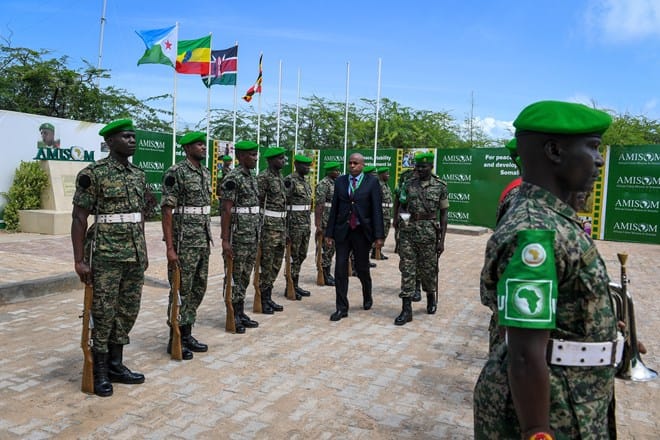On January 1, 2025, the African Union’s (AU) mission in Somalia underwent its third name change in 18 years, now being called the AU Support and Stabilisation Mission in Somalia (AUSSOM). This new designation follows the mission’s previous iterations as the AU Mission to Somalia (AMISOM) for 15 years and the AU Transition Mission in Somalia (ATMIS) since 2022.
The shift to AUSSOM reflects the mission’s focus on both supporting and stabilizing Somalia. Working in collaboration with the Somali Security Forces (SSF), AUSSOM aims to execute the Somalia Transition Plan (STP), which lays out a roadmap for transferring the country’s security responsibilities to the Somali National Security Forces (SNSF). Originally scheduled for 2021, the transfer has faced delays, which led to the continuation of ATMIS before AUSSOM was established to drive the transition forward.
In a statement marking the start of AUSSOM’s operations, Ambassador Mohammed El-Amine Souef, AU Special Representative for Somalia, praised the progress made under ATMIS. He noted that substantial advances were achieved in transferring key security positions, such as Forward Operating Bases (FOBs), to the Somali forces. This transfer, he explained, indicates that the SSF have gained sufficient capacity to assume full control of the country’s security duties.
As AUSSOM begins its mission, it will continue the work started by ATMIS, including “quick impact projects” that have aimed to improve living conditions in areas liberated from militant groups like al-Shabaab. These projects, which have included the construction of classrooms, police stations, and the installation of water systems, will remain a key component of AUSSOM’s efforts to stabilize Somalia.
Somalia has been engaged in a prolonged battle against al-Shabaab militants for many years. While the rebranding of the peacekeeping mission raises questions about whether these changes reflect a true transformation or are merely cosmetic, the mission continues to receive support from international bodies such as the European Union, the United Nations, and the African Union. However, there are critics who argue that the mission, despite its long history, has failed to eliminate al-Shabaab from the country completely. Over nearly two decades, the mission has been criticized for simply prolonging its presence without bringing about decisive success in the fight against the group.


